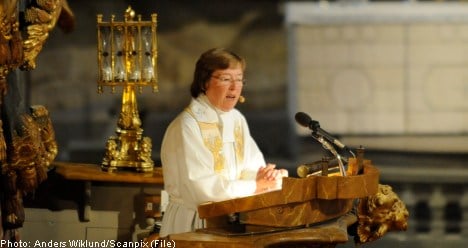Lars Ohly is the party leader. Other noteable figures within the party include MEP Eva-Britt Svensson, equality spokesperson Josefin Brink, economic policy spokesperson Ulla Andersson and foreign policy spokesperson Hans Linde.
History and ideology
The Swedish Left Party (Vänsterpartiet) has its roots in a movement which split from the Social Democratic party in 1917. The party discarded the word Communist from its name in 1990.
While the party has never served in government, the Left acted as a support party, together with the Greens, to the Social Democrats between 1998 to 2006.
Under the leadership of Gudrun Schyman, the party experienced a boom in the polls in the late 1990s, gaining 12 percent of the national votes. But by 2002 the support had fallen to 8.3 percent and has been in steady decline since Schyman resigned following tax irregularities in 2003.
Former train conductor Lars Ohly was elected party chairperson in 2004.
2010 election platform
The Left has rebranded itself as the ”Welfare Party” for the 2010 election and is campaigning on a platform of high public spending and tax rises.
Key points
*Welfare – investment in public services, ban on profits, raise sickness benefits and ceilings, and end to privatisations
*Equality – parental leave quota to be split evenly between parents, enforce right to full-time work
*Tear up FRA signals surveillance law, digital libraries instead of hunt for illegal filesharers
*Use state-owned Vattenfall to push the shift from fossil fuels to renewables, introduce free public transports in two test counties
*Introduce a vegetarian day in schools to combat the environmental impact of meat production
*Sweden to withdraw troops from Afghanistan
Comment
Lars Ohly’s difficulty in clarifying his relationship to Communism remains a complicated issue for the image of the Left Party.
The Left Party has recently adopted a more independent approach to traditional left-wing key issues. While the party has as a result enjoyed a boost in the polls, its positions are on occasion at odds with agreements made with Red-Green coalition partners.
To return to the election guide main page, click here.


 Please whitelist us to continue reading.
Please whitelist us to continue reading.
Member comments